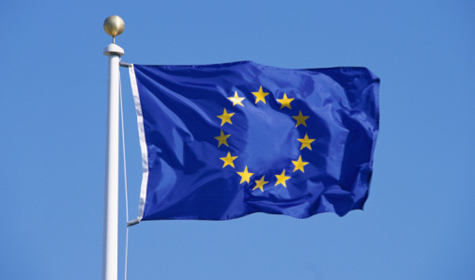Dear friends,
Dear interested,
Today, the European Parliament adopted a truly remarkable and important resolution on the next multiannual EU budget and a Corona recovery fund with a cross-party majority of pro-Europeans. This is good news for Europe. With the deep crisis hitting some countries, such as Italy and Spain, particularly hard, we now need a common programme to strengthen European cohesion. We Greens have played a driving role in the negotiations and fully support the compromise outcome between the pan-European groups. The resolution calls for a recovery plan that will support Member States mainly in the form of EU grants and is funded through long term bonds and new EU own resources. Such new own resources explicitly include European environmental taxes and charges. All this is intended to prevent the indebtedness of severely affected Member States from increasing further in the crisis.
The joint recovery plan should also promote the Green Deal and digitalisation as a priority and be linked to environmental, social and economic conditions. Together with Green MEPs from the Committee on Economic Affairs and the Committee on Budgetary Affairs in the European Parliament, I had previously presented our own proposal for a solidarity-based and green recovery fund. The outcome of the pro-Europeans’ negotiations in the European Parliament contains many elements of our green proposal. All this is a great success!
The strong text of the resolution is a clear signal for the solidary and ecological recovery plan that Europe so urgently needs. The measures taken so far at national level distort the internal market because in particular Germany can afford to support its economy much more than any other country. At the same time, the corona crisis has claimed many more victims in the southern and financially weaker Member States than in northern and central Europe. But only together can we save the eurozone from breaking apart and counteract the economic crisis and new unemployment triggered by Corona. Europe can only prosper in the long term if everyone can escape the crisis and no country loses prosperity permanently and has to struggle with escalating poverty. The European Parliament wants a reconstruction fund to achieve these goals comprising the solid amount of 2.000 billion euro.
The European Parliament is showing its strength here: courageous positions in the interests of the European common good. The resolution explicitly warns the Commission against financial alchemy with alleged large multiplier effects on EU guarantees for investment loans, as it was done to create an illusionary giant with the so called Juncker Fund.
The resolution was adopted with 505 votes in favour, 119 against and 69 abstentions. We Greens and a vast majority of social democrats voted for the resolution. A large majority of Christian democrats and liberals also voted in favour. The Left was split but they were admittedly not involved in the negotiations on the text. Many liberal and christian-democrat MEPs from Sweden, the Netherlands, Denmark and Germany voted together with the eurosceptics against the resolution contrary to the lines of their parliamentary groups. In the European Parliament, however, they do not find a majority with this position.
The pro-European alliance has stood together and supported the joint text of the resolution. This makes the situation in the European Parliament far more pleasing than in the Council, where individual countries have so far blocked a solidarity-based and extensive reconstruction fund with their opposition. This discrepancy between European democracy and the intergovernmental mode demonstrates in my view clearly that ultimately we need a European republic. It is not democratic if small minorities can repeatedly block what is necessary for the large majority in Europe. But as long as there is no tailwind for a strengthened European democracy, we need at least in particular one thing: a German Government that contributes to a strong Europe with courageous pro-European proposals together with other member states, instead of repeatedly attracting unpleasant attention with blockades.
At the same time, the Eurogroup is meeting again today to discuss the European Investment Bank’s credit programme, the main features of which have already been agreed, and the European temporary unemployment reinsurance scheme (SURE). Instead of regularly celebrating measures that have already been adopted, the finance ministers should finally devote all their efforts to the European recovery fund. Although it is on the agenda for discussion, no decision is expected. This is because in April the finance ministers passed this issue on to the heads of state and government, who in turn asked the EU Commission for a proposal. The Commission’s proposal is still pending, however.
The Commission and the Member States should take today’s decision by the European Parliament as an example. Europe now needs an ambitious and environmentally sustainable way out of the crisis. A European response in the spirit of “too little too late” as in the last crisis would be a serious threat to the future of Europe.
With happy European greetings
Sven Giegold
P.S.: Join my webinar on Tuesday at 18h, discussing the ECB ruling of the German constitutional court with experts and a mainly German and Italian audience. Register here!
Draft-Resolution of the European Parliament on the next MFF and the recovery fund https://sven-giegold.de/wp-content/uploads/2020/05/Resolution-on-the-New-MFF-Own-Resources-and-the-Recovery-1.docx
Link to the voting documentation (roll call vote): https://sven-giegold.de/wp-content/uploads/2020/05/RCV-MFF-resolution.docx
Link to green proposal for a recovery fund within the MFF: https://sven-giegold.de/wp-content/uploads/2020/05/Recovery-fund-with-the-MFF-GREENSEFA-proposal.pdf
Link to green corona bond proposal: https://sven-giegold.de/wp-content/uploads/2020/04/20-4-06-Greens-proposal-corona-fund-signed-2.pdf

